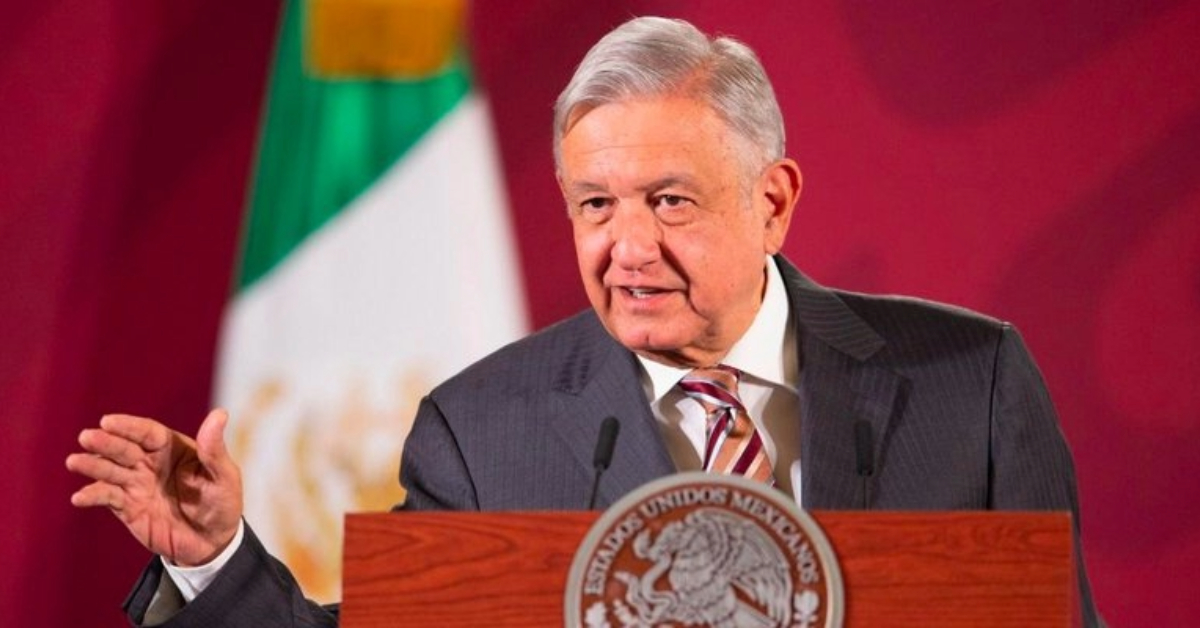Puerto Vallarta, Mexico – In a renewed critique of the United States, President Andrés Manuel López Obrador (AMLO) strongly condemned recent opinions from various U.S. sectors regarding Mexico’s judicial reforms, singling out U.S. Ambassador to Mexico, Ken Salazar. During his morning press conference, the president accused the U.S. of a recurring “mania of acting as the government of the world” and stressed that the matter of judicial reform is one that only Mexicans should decide.
The controversy arose following comments by Ambassador Salazar, who expressed concerns over the proposed reforms. AMLO was quick to defend Mexico’s sovereignty, noting that the ambassador’s remarks violate Mexico’s constitutional principles of non-intervention and the free self-determination of peoples.
“We are a free, independent, and sovereign country, and that was made clear to them,” López Obrador stated, referring to the diplomatic note sent to the U.S. government in response to Salazar’s comments. He emphasized that Mexico’s internal affairs are not subject to external judgment, especially not from the United States, and reiterated the long-standing principle of non-intervention that guides Mexican foreign policy.
Reaffirming Non-Intervention
President López Obrador used the occasion to underline Mexico’s respect for the sovereignty of other nations, pointing out that his government refrains from commenting on the internal affairs of other countries, including the United States.
“We have been very respectful of all peoples and governments of the world, we are not interventionists,” AMLO said. “Imagine us giving our opinion on what happens in the United States every day. In that sense, we have had a very good relationship.”
However, the president’s rhetoric sharply contrasted with this diplomatic tone when he criticized the U.S.’s historical tendency to act as the “government of the world.” His remarks were a clear reminder of Mexico’s long-standing frustrations with U.S. influence over Latin American affairs.
“Respect for the Rights of Others is Peace”
López Obrador invoked the famous phrase of 19th-century Mexican president Benito Juárez, “Respect for the rights of others is peace,” as a guiding principle for international relations. This phrase, central to Mexican foreign policy, was used to highlight the importance of respecting the sovereignty and independence of nations, which he said the U.S. had failed to do in this instance.
The president’s comments reflect ongoing tensions between the two countries, particularly in matters related to governance, security, and trade. While López Obrador and U.S. President Joe Biden have generally maintained a stable diplomatic relationship, differences in ideology and policy priorities continue to cause friction, especially when it comes to Mexico’s internal affairs.
Diplomatic Note to the U.S.
Mexico’s response to the situation came in the form of a diplomatic note, which AMLO referenced during his press conference. The note, delivered through the Mexican Foreign Ministry, conveyed Mexico’s displeasure with Ambassador Salazar’s remarks and reasserted the country’s right to make decisions without foreign interference.
This is not the first time President López Obrador has pushed back against comments from U.S. officials. His administration has consistently emphasized Mexico’s sovereignty in areas ranging from judicial reforms to energy policy. In this latest dispute, AMLO’s message was clear: while the Mexican government values its relationship with the U.S., it will not tolerate interference in its domestic affairs.
Broader Context
The judicial reform in question has been a point of contention within Mexico as well, with critics arguing that it could undermine the independence of the judiciary. Supporters of the reform, including members of López Obrador’s party, Morena, claim it is necessary to combat corruption and inefficiency within the judicial system. The reform aims to restructure the judicial branch, including changes to how judges are appointed and disciplined.
While Ambassador Salazar’s comments may have been intended as a reflection of U.S. concerns about the potential impact of the reforms on democracy and human rights in Mexico, they touched a sensitive nerve for AMLO, who views foreign intervention as a violation of national sovereignty.
The Future of U.S.-Mexico Relations
Despite this diplomatic clash, the U.S. and Mexico remain deeply interconnected on multiple fronts, including trade, immigration, and security. Both nations have managed to navigate differences in policy in recent years, though tensions flare occasionally over key issues.
AMLO’s remarks serve as a reminder of the delicate balance between cooperation and autonomy in the U.S.-Mexico relationship. As Mexico continues to pursue reforms under the López Obrador administration, the challenge will be to maintain this balance without allowing diplomatic disputes to overshadow the broader partnership between the two nations.
The president’s firm stance on sovereignty and non-intervention is likely to resonate with his base, which has long supported his commitment to national independence. However, it remains to be seen how the U.S. will respond to these latest criticisms, and whether the two countries can find common ground in addressing their differences.
Puerto Vallarta, Mexico - In a renewed critique of the United States, President Andrés Manuel López Obrador (AMLO) strongly condemned recent opinions from various U.S. sectors regarding Mexico's judicial reforms, singling out U.S. Ambassador to Mexico, Ken Salazar. During his morning press conference, the president accused the U.S. of a recurring "mania of acting as the government of the world" and stressed that the matter of judicial reform is one that only Mexicans should decide.

